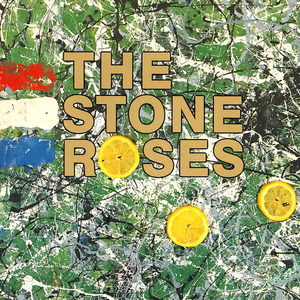Fact #63013
When:
Short story:
Full article:
As singer Ian Brown recalls, the recording sessions for their eponymous debut album gave an early indication that this was to be a remarkable debut. “They were great. We did them in London. We were living in Kensal Rise that summer. There were three sessions: June/July ’88, September ’88 and January ’89. We did the songs in blocks: Adored, Made Of Stone, Waterfall, She Bangs the Drum. Then we did Badman, Shoot, You Down, Resurrection and This Is The One.”
Like Ian Brown, producer John Leckie also remembers making the album as an auspicious time. “It was everything coming together - the guitars, the drum rhythms, the attitude. The Stone Roses were something different. Unusually for people in that stage of their career, making their first album, they had a very strict idea of quality control and knew exactly what they did and didn’t want down on tape.”
Leckie also recalls that, whatever recreational toxins they indulged in during their liesure hours, the band stayed straight during the first sessions at Battery Studios in North London. “They didn’t drink either, which was unusual,” he marvels. “I mean, I drank more than any of them. They just had a bit of wine with a meal and Ian didn’t touch beer at all, which was a revelation.”
The first sixty days at Battery were followed by a brief period at The Kinks-owned Konk Studios and, finally, the band moved to Rockfield in Wales. It was only then, finishing the album off, that the band indulged in a little weed and a little more speed.
“It did seem perfect,” recalls Leckie but, astonishingly, the band themselves never really cared for the album that was to change the course of British rock. “We were just learning how to make records,” says Brown now. “As we were rehearsing, the bass and drums got you in the belly every time but, as it turned into a record, it sounded like another 60’s thing. We’re not happy with that first LP. We had all this praise but it’s always sounded like some limp 60’s thing to us. I’ve got the original rehearsal tapes where it’s a definite band beating away.”
The press, however, didn’t seem to notice. Sounds rated it unequivocally “a masterpiece.” The NME hailed it as “an aural Big Mac laced with psychedelic dill.” Q magazine reckoned that “The spacey arrangements aligned to a fertile combination of melodies, harmonies and guitars is genuinely heady stuff.” Even across the Atlantic in America, Rolling Stone magazine observed, “The Stone Roses are blooming in technicolour.”
The summer of Madchester was about to begin in earnest.
Tweet this Fact
Like Ian Brown, producer John Leckie also remembers making the album as an auspicious time. “It was everything coming together - the guitars, the drum rhythms, the attitude. The Stone Roses were something different. Unusually for people in that stage of their career, making their first album, they had a very strict idea of quality control and knew exactly what they did and didn’t want down on tape.”
Leckie also recalls that, whatever recreational toxins they indulged in during their liesure hours, the band stayed straight during the first sessions at Battery Studios in North London. “They didn’t drink either, which was unusual,” he marvels. “I mean, I drank more than any of them. They just had a bit of wine with a meal and Ian didn’t touch beer at all, which was a revelation.”
The first sixty days at Battery were followed by a brief period at The Kinks-owned Konk Studios and, finally, the band moved to Rockfield in Wales. It was only then, finishing the album off, that the band indulged in a little weed and a little more speed.
“It did seem perfect,” recalls Leckie but, astonishingly, the band themselves never really cared for the album that was to change the course of British rock. “We were just learning how to make records,” says Brown now. “As we were rehearsing, the bass and drums got you in the belly every time but, as it turned into a record, it sounded like another 60’s thing. We’re not happy with that first LP. We had all this praise but it’s always sounded like some limp 60’s thing to us. I’ve got the original rehearsal tapes where it’s a definite band beating away.”
The press, however, didn’t seem to notice. Sounds rated it unequivocally “a masterpiece.” The NME hailed it as “an aural Big Mac laced with psychedelic dill.” Q magazine reckoned that “The spacey arrangements aligned to a fertile combination of melodies, harmonies and guitars is genuinely heady stuff.” Even across the Atlantic in America, Rolling Stone magazine observed, “The Stone Roses are blooming in technicolour.”
The summer of Madchester was about to begin in earnest.
 The
The